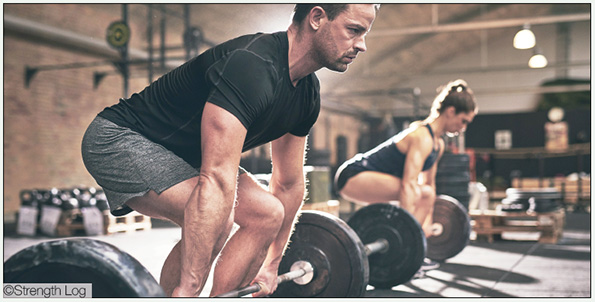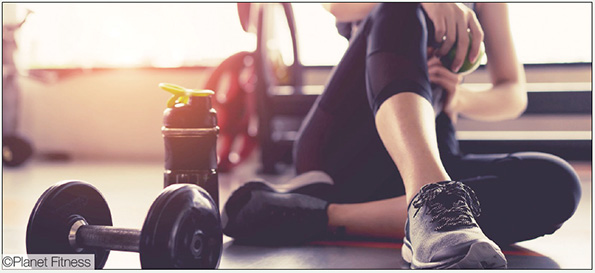
It is no exaggeration to say that Korea is currently obsessed with fitness. Searching for #OhWoonWan (finished today’s workout) on Instagram, about 7 million posts related to it can be found. Also, young people are using various fitness-related slang terms like “Helchang” (a person who only focuses on and spends most of their time building muscles at a fitness club), “Helini” (novice at working out), and “Geunsonsil” (muscle loss). The recent fitness craze has led to a “Body Profile” trend where people get professional photos taken to show off their improved body shape. Fitness influencers on Instagram and YouTube have garnered tons of followers, and their content goes viral daily. As the public attention for fitness has arisen, the media released fitness-related shows like the acclaimed Netflix show “Physical: 100.” Let’s explore the fitness craze that is currently sweeping Korea.
Fast growing of fitness industry
The fitness craze that sweeps Korea can be seen through figures, not just by feelings. Thanks to the recent fitness trend, the fitness industry is thriving and flourishing. This growth has even led to the creation of a new economic term, the “dumbbell economy,” which describes the rapid expansion of the fitness market size due to the growing interest in fitness. According to statistics from the Tax Statistical Information Service, as of the end of Nov. last year, the number of fitness club owners increased by 18.4% compared to the previous year. This trend also applies to the growth of relevant industries. The market for leggings, a popular fitness apparel, has significantly expanded over the past few years. According to market research by Euromonitor, the domestic women’s leggings market is estimated to be worth KRW 997.4 billion this year, marking a 16.3% increase from 2021. As this trend continues, it is projected that the leggings market will reach KRW 1.15 trillion by 2025. The strong interest in fitness is also making a noticeable impact on the food industry. Protein products, which were once associated mainly with bodybuilders and athletes, have recently gained widespread public attention. Consequently, the food industry is introducing various protein shakes. According to the Korea Agro-Fisheries & Food Trade Corporation, the domestic protein food market has nearly tripled in just three years, growing from KRW 81.3 billion in 2018 to KRW 336.4 billion in 2021.

Why are people getting into fitness?
Lee Sang-yu(Dept. of Politics and International Relations, 19) is known as “Helchang.” He visits the gym six days a week and maintains a diet that includes chicken breast, konjac rice, and protein shakes, if there is no scheduling conflict. He explained, “I used to have concerns about my appearance. During my time in the military, I gradually developed an interest in working out, and as I remained dedicated to it, I started noticing significant changes in my physique. I felt lighter overall and more confident as I became more muscular. Various styles of clothing began to suit me, and people around me started to view me more positively. Moreover, I naturally embraced fitness thanks to the influence of many fitness enthusiast friends.” He experienced positive changes in both his physical and mental health through fitness. He said, “When I lost weight, I felt more healthier, refreshed and energetic in my daily activities and sleep. Also, my self-confidence has also increased.” Kang Yoon-soo, a fitness trainer at CBNU Sports Center, felt the increased interest among young people in fitness since the outbreak of COVID-19. He attributed this trend to the media development and an increased desire for self-improvement. He explained, “A decade ago, when I first started to work out, it was tough to find workout information. However, with the rise of social media, people are inspired by others in social media, and the growing desire for health care among young people seems to have led to the demand for health.” Additionally, He mentioned the positive outcomes that can be achieved through fitness, both physically and mentally. He said, “The most significant benefit of working out is a physical change. In addition, working out has several mental benefits like stress relief.”
Is fitness truly healthy?
As the interest of young people in fitness has arisen, there are growing concerns whether the recent fitness culture is genuinely beneficial to health. The recent trend of uploading photos of their body shape, such as #OhWoonWan and Body Profile, occasionally leads to behavior that, ironically, harms their health. Many people have engaged in strenuous workouts and a very low-calorie diet for about two or three months, just for the Body Profile photoshoot. Thus, an increasing number of people has been struggling with diseases such as digestive disorders, obsessive-compulsive disorder, and bulimia after doing it. In response to this issue, he emphasized the importance of enjoying workouts without obsession in order to maintain a healthy and effective fitness routine. He said, “There are some people who are extremely obsessed with their workout which they claim to just do for a hobby. In some cases, people who exercise as a hobby feel that they must work out even when they are sick and strictly follow their diet while under extreme stress. However, it is important that we should not be bound by these things for a healthy workout.”
In addition, there are often cases where people injure their joints or ligaments by attempting to lift weights beyond their capacity due to an obsession with heavy-weight workouts. According to the Survey of Life Sports Safety Accidents in 2019, 73.7% of respondents who usually worked out have experienced injuries, involving sprains and bruises in body parts such as the shoulders, waist, and wrists. Kang said, “Persistently increasing the weight despite incorrect workout posture can be seen as a form of compulsion. I think it is good to set lifting more weight as one goal, but you do not have to be obsessed with this.” Furthermore, professor Kim Yong-hwan from the Dept. of Family Medicine at CBNU Hospital explained several crucial considerations for injury-free and healthy fitness. He said, “In order to reduce the risk of injury, you need to prepare and recover your muscles and joints through sufficient warm-up and cool-down before and after workout. It is also important to learn the correct postures and techniques and not to increase the workout intensity too rapidly. Additionally, it is better not to rely on just a singular workout but to follow a balanced training program, including various workouts.” It is also essential to secure a sufficient rest and recovery period after exercise and to know your strength and limitations for a healthy and effective workout.
As the attention for fitness has increased, some gym-goers are increasingly taking various supplements such as protein products and BCAA (Branched-Chain Amino Acids) to improve muscle growth. However, some people misunderstand that consuming more of these products will escalate muscle growth, leading to overuse. Protein products and supplements are designed to supplement nutrients, so excessive intake can lead to side effects such as kidney strain or skin issues. Prof. Kim offers several key points for the healthy consumption of these supplements. He advised, “First of all, BCAA and whey protein are the only supplements recommended to be effective in sarcopenia. Whey protein can be consumed within 30 minutes after workout or as a meal replacement. Nevertheless, it is crucial to maintain a balanced diet alongside its consumption. BCAA is mainly metabolized in muscle, which helps muscle growth and reduces muscle pain. However, do not forget to supplement it with a balanced diet, as there are studies showing that BCAA intake increases the need for vitamin B group. It would be helpful to take BCAA immediately before exercise, after exercise, and before bed. It is important to choose high-quality supplements products manufactured from reliable brands. Also, all products should be checked for raw materials and contents by reading labels to avoid unnecessary additives and to follow recommended intake. Supplements cannot replace meals. Even if you take supplements, you must maintain a balanced diet. If any side effects occur when taking supplements, stop taking them immediately and consult your doctor.” Lastly, Prof. Kim urges people to make supplement choices carefully and take them, and the choice of supplements depends on their specific goals and needs.

By Shim Yun-seop
sys091109@chungbuk.ac.kr


 All
All Culture
Culture






 Shim Yun-seop
Shim Yun-seop











